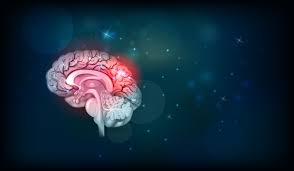Stroke has reached epidemic levels across the globe with predictions stating that 1 out of 4 adults over the age of 25 years will get a stroke. If individuals take proper appropriate and timely action can prevent a stroke.
Stroke
A stroke can happen anywhere at any time and to anyone. A stroke occurs if the brain requires oxygen – lack of oxygen results in brain damage and loss of function. Disruption in the supply of oxygen, a clot in the artery supplying blood to the brain or leakage of blood in the brain due to vessel burst could lead to a stroke.
Causes of Stroke
The onset of atherosclerosis with increasing age increases the chances of stroke greatly. The other risk factors include consumption of tobacco, reduced physical activity, unhealthy diet, excessive intake of alcohol, hypertension, atrial fibrillation, obesity, male gender coupled with genetic and psychological reasons.
Effects of Stroke
A stroke leaves a long-lasting effect on the individual –
- Physical Disability leading to dependence on others
- Challenges in communication leading to mental stress, anxiety and depression
- On the overall, the individual may feel despaired and broken regarding loss of work, income and movement within the society.
Tips and guidelines on how to prevent a stroke
Yes, it is possible to prevent a stroke. Nearly 90% of stroke can be prevented by adopting a healthy lifestyle power-packed with nutrition, adequate physical exercise and maintaining good mental health.
Tips for Stroke Prevention

1 . Blood Pressure:
Stroke is directly related to high blood pressure levels. It is advisable to perform blood pressure check regularly and approach a health professional if it is on the higher side. At times, there are no noticeable symptoms of high blood pressure, so it pays to be cautious.
2. Exercise:
Adequate exercise will minimize the risk of a stroke. It is advisable to exercise for just 30 minutes daily for five days of the week to reduce the risk of a stroke to 25%. Exercise right to stay healthy and keep a stroke at bay.
3. Diet:
Adopt a healthy diet that aims to maintain normal blood pressure, healthy cholesterol levels and raise your activity levels. Eat right to stay healthy and active and minimize the risk of a stroke.
4. Weight:
Aim to have an ideal weight which means normal blood pressure, a healthy heart with normal cholesterol levels and no diabetes. Once these health factors are in place, the chances of stroke diminish greatly.
5. Irregular and Fast Heartbeat or Atrial Fibrillation:
Seek the most suitable treatment for irregular and fast heartbeat as they can lead to a stroke. Atrial fibrillation can be controlled with the right and timely treatment and prevent a stroke as well. Strokes due to atrial fibrillation are severe and can be fatal too.
6. Smoking:
Quit smoking and turn healthy. Quitting smoking implies healthy lungs and a fit body along with a greatly reduced risk of stroke and a host of other fatal diseases. Also, passive smokers will benefit from this else they too, are at risk of a stroke.
7. Alcohol:
Alcohol intake is directly linked to a stroke, be it excessive or regular or an occasional drink. So, regulate alcohol intake to reduce stroke risk.
8. Cholesterol:
High levels of LDL cholesterol indicate an increased risk of a stroke. It is advisable to make a conscious change in food and lifestyle along with medication to lower the LDL cholesterol and reduce the risk of a stroke and onset of other cardiovascular diseases.
9. Diabetes:
High sugar levels imply diabetes which is yet another life-threatening health condition. Adopting diabetes-friendly food habits coupled with recommended physical exercise routine, medications, and regular checkups of sugar levels are the keys to staying healthy and avoiding a stroke.
10. Mental Health:
Life is full of challenges, but a positive frame of mind goes a long way in maintaining good physical health. Middle-aged and older people need to meditate, positive thinking and approach toward life to help in living meaningfully. Try to keep depression and stress away and minimize the chance of a stroke.
